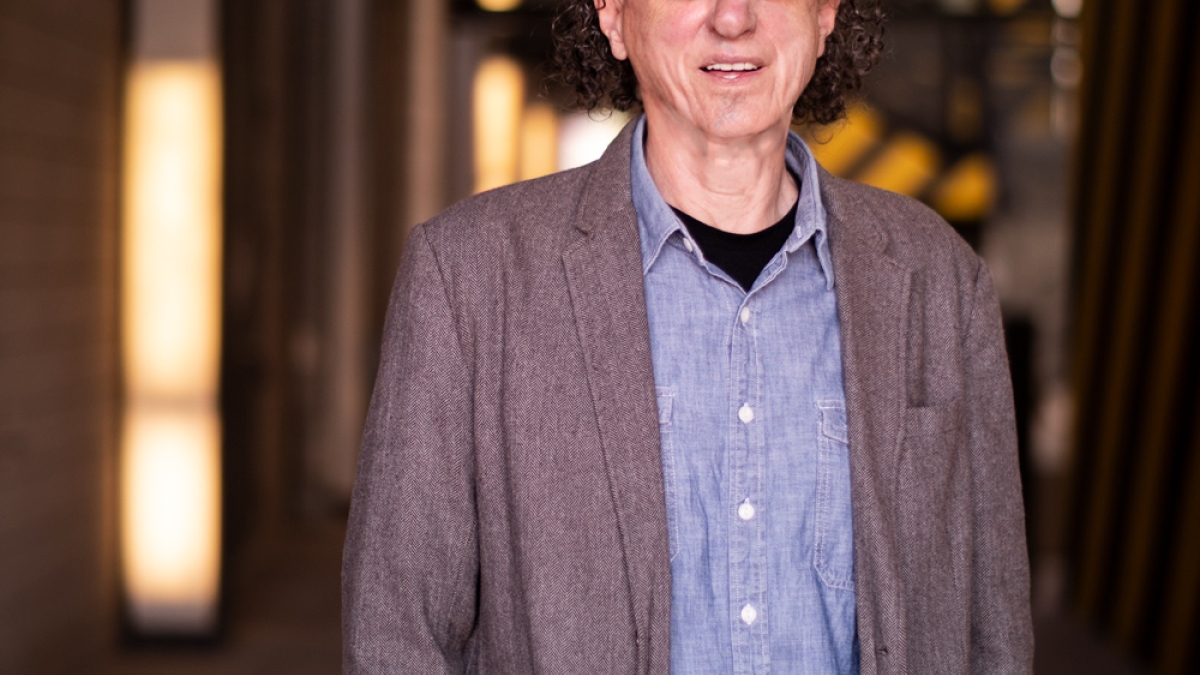Psychology faculty member receives lifetime achievement award

ASU President’s Professor Douglas Kenrick is the 2022 recipient of the Lifetime Career Award for Distinguished Scientific Contributions to the field of evolutionary psychology.
The Human Behavior and Evolution Society recently announced that ASU President’s Professor Douglas Kenrick is the 2022 recipient of the Lifetime Career Award for Distinguished Scientific Contributions.
Kenrick was previously the president of the Human Behavior and Evolution Society in 2018 and is the author of "Solving Modern Problems with a Stone-Age Brain."
The Human Behavior and Evolution Society is an interdisciplinary society of those studying human behavior from an evolutionary perspective and includes scientists from the anthropological, psychological and biological sciences. Previous winners of the Lifetime Career Award include Randy Nesse, professor and founder of the ASU Center for Evolutionary Medicine; Steven Pinker, the Johnstone Family Professor of Psychology at Harvard University; Martin Daly, emeritus professor of psychology at McMaster University; Leda Cosmides, Distinguished Professor at the University of California, Santa Barbara; and David Buss, professor at the University of Texas, Austin. The award is considered one of the highest honors an evolutionary psychologist can receive.
“The HBES Lifetime Career Award for Distinguished Scientific Contribution is awarded to HBES members who have made distinguished theoretical or empirical contributions to basic research in evolution and human behavior,” Kenrick said. “It is an honor to be considered among the greats in our field. To be given this award is about as good as I could do in my life.”
Kenrick, an evolutionary social psychologist, investigates how human social behavior and thought might reflect biological adaptations that influenced our ancestors’ survival and reproductive success.
He is the co-director of the Evolutionary Social Cognition Lab with Foundation Professor Steven Neuberg and D. Vaughn Becker, associate professor in the ASU Human Systems Engineering Program. Over the course of his research career, Kenrick and his team have mentored hundreds of undergraduate and graduate students.
The lab combines theoretical and conceptual frameworks to answer questions about how social goals can influence people’s perceptions, beliefs and decisions.
RELATED: Modern technology vs. our stone-age brains
In 2010, Kenrick published a new model of human motivation together with Neuberg and two ASU alums, Vladas Griskevicius and Mark Schaller. This model is an adaptation of Maslow’s hierarchy and places kin care at the top of the pyramid of needs.
“We focus, in particular, on the ways in which self-protection, mating, status-striving, social affiliation, disease avoidance and kin care goals selectively facilitate who we pay attention to, who we remember and how we choose to behave toward other people,” Kenrick said.
Although evolutionary psychology has often been seen as the study of “selfish genes,” and been misconstrued to imply that selfish genes translate into selfish people, Kenrick suggests that the best evidence from psychology, anthropology and human biology suggests that our ancestors, who needed their group members to survive and reproduce, were selected for cooperation rather than individual selfishness.
“We're designed to live in groups. We're designed for our genes to do better when we are nice, not when we're nasty. Your genes might be selfish, but if you're a selfish person, you're going to be socially isolated,” Kenrick said. “People don't want to deal with you if you're nasty, whether you are a group member or a leader. Some people have presumed that if you're a domineering, pushy, nasty person, you can get somewhere in life; but if you slip up when you use that strategy, the other group members are going to want to remove you.
"If you're a nice leader, on the other hand — somebody who cares about the group and who shares information — people will like you and want to keep you on as a leader. And there’s a side benefit: Research demonstrates not only that other people like you more if you are cooperative and supportive, you are also likely to feel better about yourself. We seem to be naturally inclined to feel good when we make others feel good.
“So the bottom line seems to be: The best thing you can do for yourself is to be unselfish."
More Science and technology

4 ASU researchers named senior members of the National Academy of Inventors
The National Academy of Inventors recently named four Arizona State University researchers as senior members to the prestigious…

Transforming Arizona’s highways for a smoother drive
Imagine you’re driving down a smooth stretch of road. Your tires have firm traction. There are no potholes you need to swerve to…

The Sun Devil who revolutionized kitty litter
If you have a cat, there’s a good chance you’re benefiting from the work of an Arizona State University alumna. In honor of…

